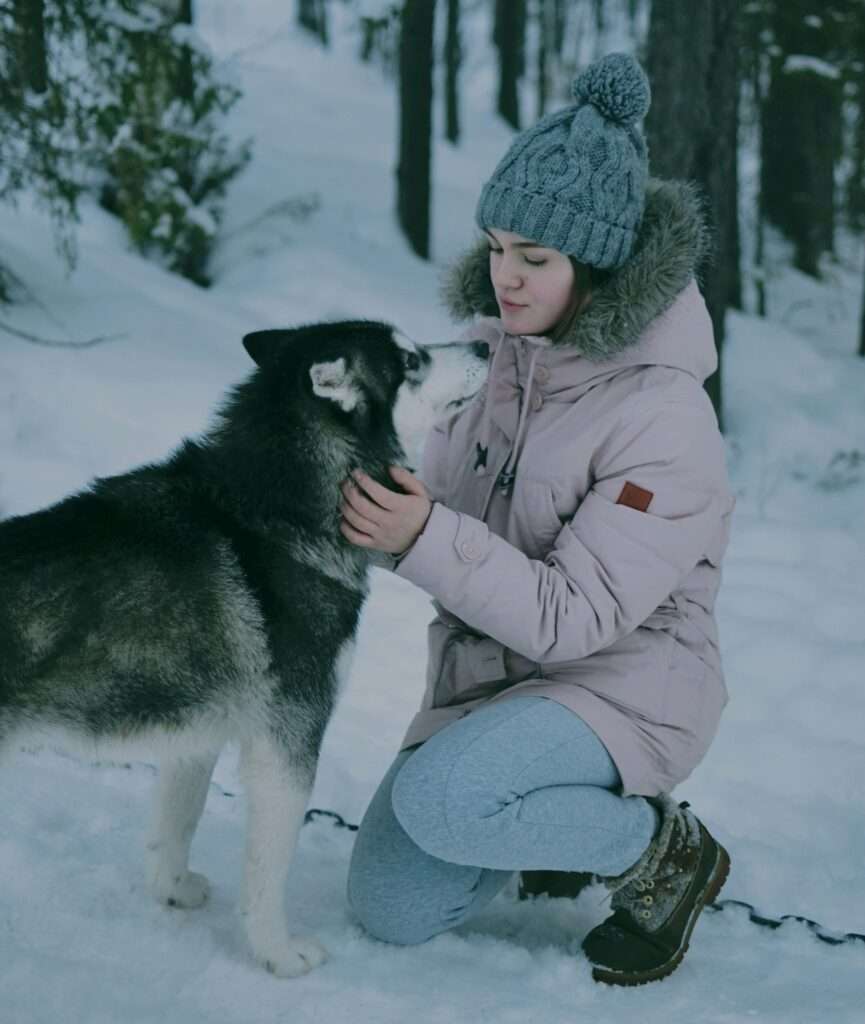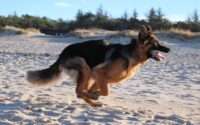How Long Do Huskies Live? Exploring the Lifespan of these Amazing Dogs
Welcome to BarkLikeMeow’s Ultimate Guide to Husky Lifespan! Huskies have stolen the hearts of many dog lovers with their striking appearance and spirited nature. As one of the most popular breeds, it’s only natural to wonder about the duration of their precious time with us.
If you’re a proud owner or an aspiring enthusiast of the magnificent Siberian Husky breed, understanding their lifespan is of utmost importance. In this comprehensive article, we delve into every aspect that affects how long Huskies live. So, buckle up and embark on this informative journey with us!
Understanding the Average Lifespan of Huskies
When it comes to our beloved Huskies, one burning question lingers in the minds of many: “How long do Huskies live?” To answer this, let’s delve into the fascinating history and evolution of this remarkable breed. Originating in northeastern Asia, Huskies were bred by the Chukchi people as versatile working dogs. Over time, their endurance, strength, and resilience have made them popular companions worldwide.
But what about their lifespan? On average, Huskies live approximately 12 to 15 years. However, it’s essential to note that individual Huskies’ lifespans can vary based on various factors. In the following sections, we’ll explore these factors in detail, shedding light on the key determinants of a Husky’s longevity.
Factors Affecting Husky Lifespan
- Genetic Factors: Just like with any breed, genetic factors play a significant role in determining a Husky’s lifespan. Breeding practices and genetic predispositions can influence their overall health and susceptibility to certain conditions. Reputable breeders prioritize responsible breeding, aiming to produce healthier and genetically diverse litters. However, certain hereditary health conditions may still affect Huskies, such as hip dysplasia, cataracts, and autoimmune diseases.
- Environmental Factors: The environment in which a Husky lives can also impact their lifespan. Considerations such as climate and geography play a role. Huskies thrive in colder climates due to their thick double coats, which provide insulation. Extreme heat can be challenging for them, so it’s vital to ensure they have access to shade and fresh water during warmer months. Additionally, providing a safe and stimulating living environment contributes to their overall well-being.
- Lifestyle Factors: The way we care for our Huskies greatly influences their lifespan. Nutrition and dietary requirements play a crucial role in their health and longevity. A balanced diet that meets their specific nutritional needs promotes optimal growth and helps prevent obesity-related issues. Regular exercise and physical activity are equally important for Huskies, as they are an energetic breed with high exercise requirements. Mental stimulation and socialization are also key to their well-being.
- Veterinary Care and Health Maintenance: Regular veterinary check-ups and proper healthcare are essential for ensuring a long and healthy life for your Husky. Routine examinations, vaccinations, and preventive measures against common health issues, such as heartworm disease and parasites, are vital. Regular dental care, including brushing their teeth and providing appropriate chew toys, helps maintain oral health and prevent periodontal diseases. By staying proactive in their healthcare, we can significantly extend their lifespan.
By understanding and considering these factors, we can make informed decisions and take appropriate actions to promote the longevity and well-being of our beloved Huskies. In the upcoming sections, we will explore common health issues in Huskies, practical tips for promoting their health, and what to expect throughout their various life stages.
Common Health Issues in Huskies
While Huskies are generally healthy dogs, there are some common health issues that may affect them. Being aware of these conditions can help you identify symptoms early and seek appropriate veterinary care. Here are some of the health issues to be mindful of:
- Genetic Disorders and Inherited Diseases:
- Hip dysplasia: a common condition where the hip joint doesn’t develop properly, leading to mobility issues.
- Progressive retinal atrophy (PRA): a group of inherited diseases causing degeneration of the retina, potentially leading to vision loss.
- Canine juvenile cataracts: a hereditary condition resulting in the clouding of the lens, affecting vision.
- Orthopedic Conditions and Joint Problems:
- Arthritis: inflammation of the joints, causing pain and reduced mobility.
- Elbow dysplasia: abnormal development of the elbow joint, leading to lameness and discomfort.
- Eye-related Diseases and Conditions:
- Corneal dystrophy: a group of genetic conditions causing opacity or clouding of the cornea.
- Glaucoma: increased pressure within the eye, potentially leading to vision loss.
- Skin and Coat Issues:
- Atopic dermatitis: an allergic skin condition characterized by itching, redness, and recurrent skin infections.
- Alopecia X: a condition causing hair loss and abnormal coat growth.
- Gastrointestinal Problems:
- Inflammatory bowel disease (IBD): chronic inflammation of the gastrointestinal tract, leading to digestive issues.
- Dental Health Concerns:
- Periodontal disease: inflammation and infection of the gums and tissues surrounding the teeth.
- Age-related Health Issues:
- Canine cognitive dysfunction (CCD): similar to Alzheimer’s disease in humans, causing cognitive decline in senior dogs.
While this list highlights some common health issues in Huskies, it’s important to remember that not all Huskies will experience these conditions. Regular veterinary check-ups and attentive care can help mitigate these risks and ensure a long and healthy life for your Husky companion.
Tips for Promoting a Healthy Lifespan in Huskies

Ensuring a healthy and fulfilling life for your Husky requires proactive care and attention. Here are some valuable tips to promote their well-being and extend their lifespan:
- Choosing a Reputable Breeder: When adding a Husky to your family, select a reputable breeder who prioritizes responsible breeding practices. A reputable breeder will conduct health screenings, provide proper socialization, and offer ongoing support.
- Early Socialization and Training: Start socializing your Husky from a young age, exposing them to various people, animals, and environments. Positive reinforcement training helps instill good behaviors, strengthens the bond between you and your Husky, and promotes mental stimulation.
- Creating a Balanced and Nutritious Diet: Consult with your veterinarian to develop a well-balanced diet that meets your Husky’s nutritional needs. Ensure their diet includes high-quality proteins, essential fatty acids, and a proper balance of carbohydrates and vitamins. Avoid overfeeding and monitor their weight to prevent obesity-related health issues.
- Regular Exercise and Mental Stimulation: Huskies are an active breed that thrives on physical activity. Engage in daily exercise routines to meet their exercise requirements. Additionally, provide mental stimulation through puzzle toys, interactive games, and training sessions to keep their minds sharp and engaged.
- Grooming and Maintaining Coat Health: Huskies have a thick double coat that requires regular grooming to prevent matting and promote skin health. Brush their coat regularly to remove loose fur and distribute natural oils. Check their ears for cleanliness and trim their nails regularly.
- Dental Care and Hygiene Practices: Implement a dental care routine by brushing your Husky’s teeth regularly with dog-friendly toothpaste. Provide dental chews and toys to promote healthy gums and teeth. Regular dental check-ups with your veterinarian are essential to maintain good oral hygiene.
- Providing a Safe and Comfortable Living Environment: Create a safe, well-maintained environment for your Husky. Provide adequate shelter, protect them from extreme temperatures, and ensure they have access to clean water and a balanced diet. Regularly inspect their living area for any potential hazards.
- Monitoring and Managing Weight: Maintain a healthy weight for your Husky by monitoring their food intake, providing portion-controlled meals, and incorporating regular exercise. Obesity can lead to various health issues, so maintaining an ideal weight is crucial.
- Recognizing Signs of Illness and Seeking Veterinary Care Promptly: Familiarize yourself with common signs of illness in Huskies, such as changes in appetite, energy levels, or unusual behaviors. Seek veterinary care promptly if you notice any concerning symptoms to address potential health issues early on.
By implementing these tips into your Husky’s care routine, you can significantly contribute to their overall health and longevity.
Lifespan Expectations for Huskies in Various Age Ranges
Understanding the different life stages of your Husky is essential for providing appropriate care and recognizing their changing needs. Here’s an overview of lifespan expectations for Huskies in various age ranges:
- Puppies and Their Development Stages: Husky puppies go through rapid growth and development in their first year of life. They require a nutritious diet, plenty of socialization, and positive reinforcement training to set a solid foundation for their adult years. Puppies generally have abundant energy and curiosity during this stage.
- Adolescence and Young Adult Years: As Huskies transition from puppies to young adults, their energy levels remain high. They continue to benefit from regular exercise, mental stimulation, and ongoing training. This is the time to reinforce good behaviors and solidify their training foundation.
- Prime Adulthood: In their prime adult years, typically between 3 to 7 years old, Huskies are at their peak physical condition. They have settled into their temperament and exercise requirements. Maintaining their healthy lifestyle, including a balanced diet and regular exercise, is crucial during this phase.
- Senior Years: As Huskies reach their senior years, generally around 7 to 10 years old, their energy levels may decrease, and they may experience some age-related health issues. Regular veterinary check-ups become even more important to monitor their overall health. Adjusting their exercise routine, providing joint supplements, and offering mental stimulation tailored to their abilities can help them age gracefully.
Remember, individual Huskies may have variations in their lifespan due to genetics, overall health, and the care they receive throughout their lives. By providing attentive care and addressing their evolving needs, you can maximize the lifespan and quality of life for your beloved Husky companion.
Prolonging the Lifespan of Aging Huskies

As Huskies enter their golden years, there are specific considerations to keep in mind to promote their health and well-being. Here are some tips for prolonging the lifespan of aging Huskies:
- Regular Veterinary Check-ups: Schedule regular check-ups with your veterinarian to monitor your aging Husky’s overall health. Senior dogs may require more frequent visits to address age-related concerns and ensure early detection of any potential health issues.
- Balanced Diet and Weight Management: Adjust your Husky’s diet to meet their changing nutritional needs as they age. Senior-specific dog foods often have lower calorie content and additional joint support. Monitor their weight to prevent obesity, which can lead to various health problems.
- Joint Care and Mobility Support: Aging Huskies may experience joint stiffness and arthritis. Consider incorporating joint supplements or medications recommended by your veterinarian to alleviate discomfort and maintain mobility. Providing orthopedic bedding and ensuring a comfortable environment can also ease joint strain.
- Mental Stimulation and Enrichment: Keep your aging Husky mentally engaged with puzzles, interactive toys, and gentle training exercises. Mental stimulation can help maintain cognitive function and prevent cognitive decline associated with aging.
- Adjusted Exercise Routine: While exercise remains important for senior Huskies, it may need to be modified to accommodate their changing abilities. Shorter, low-impact walks and gentle play sessions can still provide stimulation without overexertion. Pay attention to signs of fatigue or discomfort and adjust accordingly.
- Dental Care and Oral Hygiene: Senior dogs are more prone to dental issues, such as gum disease and tooth decay. Maintain regular dental care by brushing their teeth and providing dental treats or toys. Routine dental cleanings may be necessary to prevent oral health problems.
- Monitor Cognitive Health: Keep an eye out for signs of canine cognitive dysfunction (CCD) in your aging Husky, such as disorientation, changes in sleep patterns, or decreased responsiveness. Consult your veterinarian if you suspect cognitive decline, as there may be interventions or treatments available to support their cognitive function.
Remember, each aging Husky is unique, and their needs may vary. Pay attention to their individual requirements and consult with your veterinarian for personalized care recommendations.
Case Studies: Longevity in Huskies
To illustrate the potential for a long and healthy lifespan in Huskies, let’s explore a few inspiring case studies:
- Luna: Luna, a Siberian Husky, lived an impressive 17 years. Her longevity was attributed to a combination of factors, including a balanced diet, regular exercise, and diligent veterinary care. Luna’s owner prioritized her health, providing her with a loving home and addressing any health issues promptly. Luna’s exceptional lifespan serves as a testament to the importance of proactive care.
- Max: Max, a male Husky, celebrated his 16th birthday. Max’s owner focused on maintaining his joint health by providing supplements and incorporating low-impact exercise, such as swimming. They also ensured Max received regular dental care, which contributed to his overall well-being. Max’s longevity showcases the impact of attentive care and tailored support.
- Bella: Bella, a rescue Husky, thrived under her new owner’s dedicated care. Bella’s owner provided her with a balanced diet, mental stimulation through puzzle toys, and regular veterinary check-ups. Bella’s radiant health and vibrant personality exemplify the transformative power of a loving and nurturing environment.
These case studies highlight that with proper care, attention to specific needs, and a loving home, Huskies can live well beyond their average lifespan. By drawing inspiration from these examples, you can strive to provide your Husky with the best possible care to maximize their years of companionship.
Coping with the Loss of a Husky

Saying goodbye to a beloved Husky companion is an incredibly difficult experience. Coping with the loss requires time, patience, and understanding. Here are some suggestions to help you navigate the grieving process:
- Allow Yourself to Grieve: Grief is a natural response to losing a cherished pet. Give yourself permission to experience the range of emotions that come with loss, whether it’s sadness, anger, or guilt. Recognize that everyone grieves differently, and there is no right or wrong way to mourn the loss of your Husky.
- Seek Support: Reach out to friends, family, or support groups who understand the unique bond between humans and their pets. Sharing your feelings with others who have gone through similar experiences can provide comfort and validation. Consider joining online communities or forums dedicated to pet loss support.
- Memorialize Your Husky: Create a meaningful tribute to honor your Husky’s memory. Planting a tree, creating a photo album, or crafting a personalized keepsake can provide a sense of closure and help you cherish the special moments you shared. Consider making a donation in your Husky’s name to an animal welfare organization as a way to give back.
- Take Care of Yourself: During this challenging time, it’s essential to prioritize self-care. Engage in activities that bring you joy and provide comfort, such as spending time in nature, practicing mindfulness, or seeking solace in hobbies. Make sure to attend to your physical and emotional well-being, eat nourishing meals, and get plenty of rest.
- Consider Pet Bereavement Counseling: If the grief becomes overwhelming or affects your daily life significantly, consider seeking professional support through pet bereavement counseling. Trained counselors can provide guidance, empathy, and tools to navigate the grieving process.
Remember, healing takes time, and it’s normal to feel the loss of your Husky for an extended period. Eventually, as you move through the grieving process, you may find solace in celebrating the cherished memories and the love you shared with your beloved companion.
Conclusion
The lifespan of a Husky can vary depending on various factors, including genetics, lifestyle, and healthcare. By prioritizing their well-being through proper nutrition, exercise, veterinary care, and a loving environment, you can contribute to extending their lifespan and enhancing their quality of life.
Understanding the specific needs of Huskies in different age ranges, addressing common health issues, and providing tailored care can help ensure their longevity. Remember to consult with your veterinarian for personalized recommendations based on your Husky’s individual needs.
While the loss of a Husky can be heartbreaking, coping with grief and finding ways to honor their memory can provide solace. Embrace the joy and unconditional love that your Husky brought into your life, and remember that their spirit will always hold a special place in your heart.
As you embark on your journey with a Husky, may you create lasting memories, build a strong bond, and treasure the precious moments shared with your furry companion. Here’s to a fulfilling and meaningful life with your Husky, filled with love, adventure, and cherished memories.
Frequently Asked Questions
How long do Huskies typically live?
On average, Huskies have a lifespan of 12 to 15 years. However, with proper care and attention to their health needs, some Huskies can live even longer.
What factors influence the lifespan of Huskies?
Several factors can affect a Husky’s lifespan, including genetics, diet, exercise, veterinary care, and overall lifestyle. Providing a balanced diet, regular exercise, and routine veterinary check-ups can contribute to a longer and healthier life for your Husky.
Can Huskies live longer with proper care?
Yes, Huskies can live longer with proper care. Providing a nutritious diet, regular exercise, mental stimulation, and prompt veterinary attention can help prolong their lifespan and enhance their overall well-being.
Do Huskies have any specific health concerns that may affect their lifespan?
Huskies are generally a healthy breed, but they can be prone to certain health issues such as hip dysplasia, eye problems, and skin conditions. Regular veterinary check-ups and addressing any health concerns early can help manage these issues and potentially extend their lifespan.
Are there any specific dietary requirements for Huskies to promote a longer lifespan?
Huskies require a balanced diet that meets their nutritional needs. High-quality dog food formulated for their age and activity level is recommended. Consult with your veterinarian for dietary recommendations specific to your Husky’s needs.
How important is exercise for a Husky’s lifespan?
Regular exercise is crucial for a Husky’s overall health and well-being. It helps maintain a healthy weight, promotes cardiovascular health, and keeps them mentally stimulated. However, it’s essential to adjust the intensity and duration of exercise as your Husky ages to prevent strain or injury.
Can Huskies live longer with a specific lifestyle or environment?
Providing a loving and nurturing environment, along with a consistent routine, can contribute to a longer and happier life for your Husky. They thrive when they receive plenty of mental and physical stimulation, companionship, and a safe and secure living space.
How can I ensure my Husky has a high quality of life as they age?
As your Husky ages, you can promote their quality of life by addressing their changing needs. This includes adjusting their diet, providing joint care and mobility support, monitoring their cognitive health, and providing plenty of love, attention, and mental stimulation.
Remember, every Husky is unique, and individual factors can influence their lifespan. Consult with your veterinarian for personalized advice and guidance on ensuring the best care for your Husky throughout their life.




